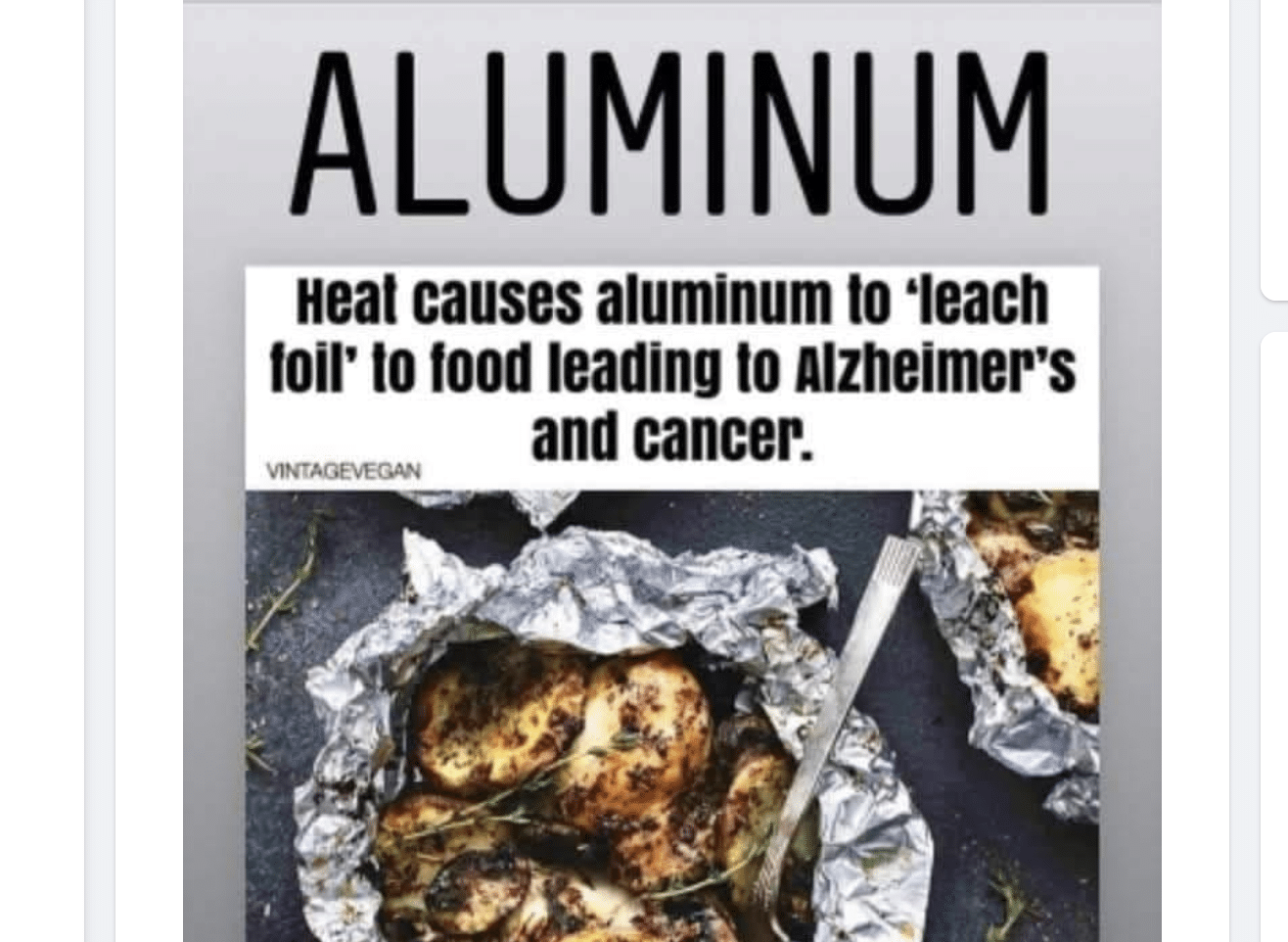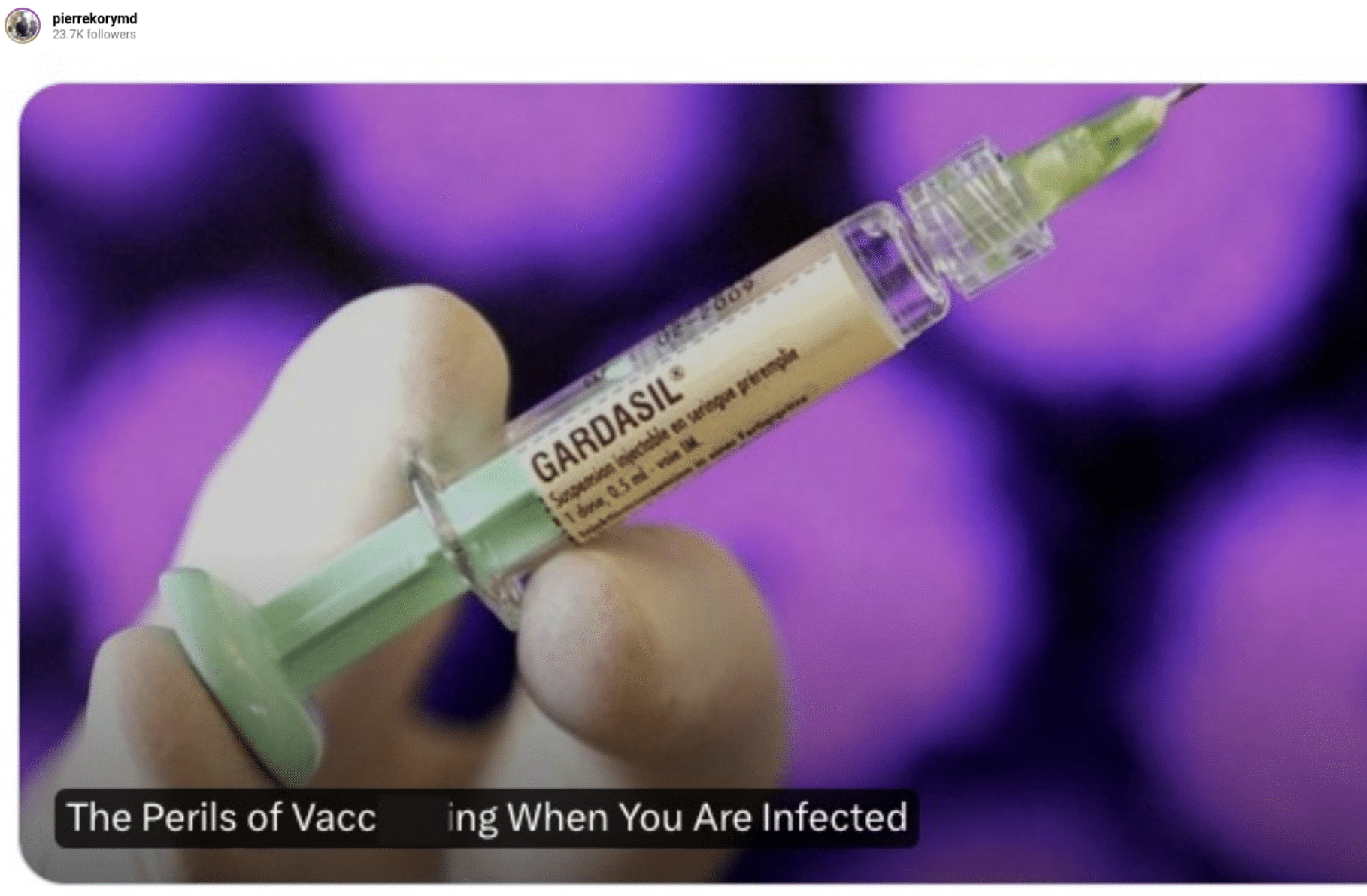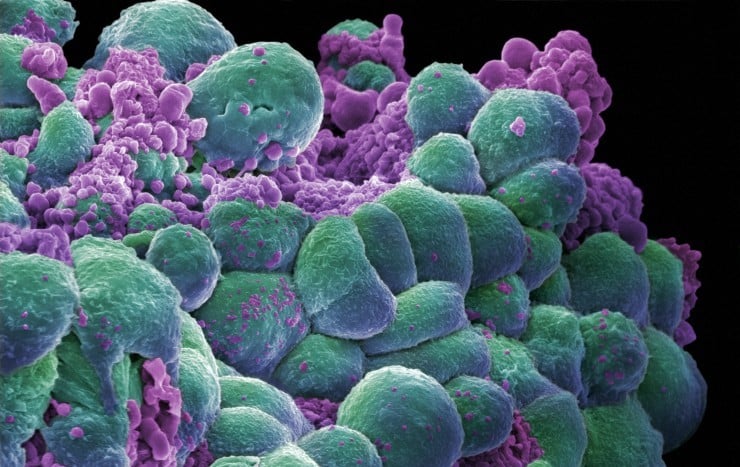- Health
Viral video makes inaccurate claims regarding sugar; suggests it causes medical conditions like cancer and ADHD
Key takeaway
Sugar is a necessary part of the diet; it is an energy source and aids healthy cell growth and maintenance. Just like any other nutrient, excess consumption of sugar can have negative consequences on health. Maintaining a balanced diet reduces the risks associated with consuming too much sugar, which is linked to chronic illnesses including type 2 diabetes, cardiovascular disease, and obesity.
Reviewed content
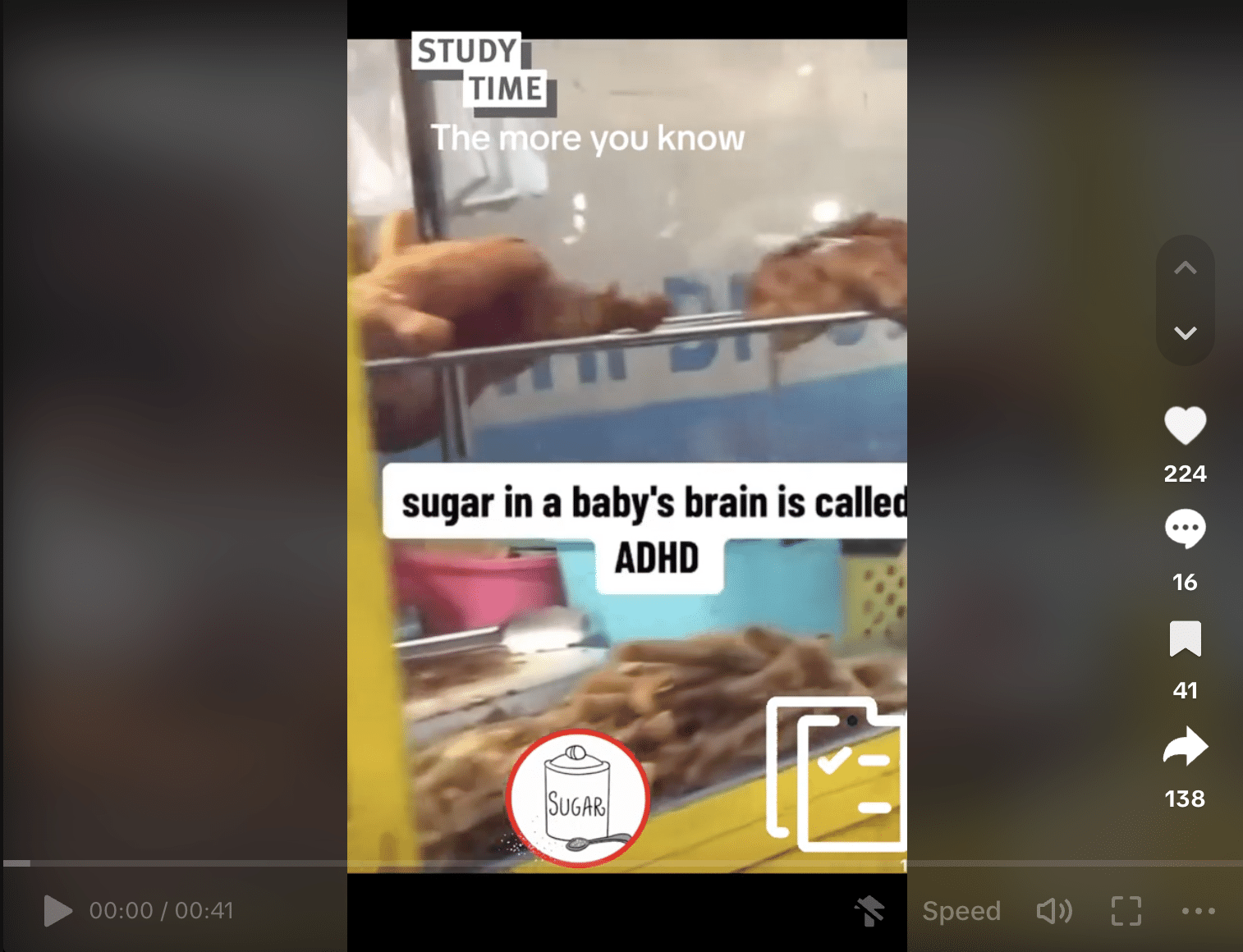
Verdict:
Claim:
Sugar causes ADHD in babies, dementia and Alzheimer's in adults, cancer
Verdict detail
Misrepresents a complex reality: While excess sugar consumption can lead to adverse health outcomes, sugar alone does not cause medical conditions like ADHD or cancer. Other genetic and environmental factors also play a role.
Full Claim
Sugar causes ADHD in babies, dementia and Alzheimer's in adults; sugar causes glaucoma, skin aging, insomnia, diabetes; excess sugar in your system is called cancer; addiction to sugar is eight times more powerful than cocaine
Review
A viral video shared widely across Facebook, X (formerly Twitter), and TikTok in September 2023 presented social media users with a series of claims suggesting that sugar is responsible for a wide range of medical conditions, including attention-deficit/hyperactivity disorder (ADHD), Alzheimer’s, dementia, glaucoma, cavities, aging, insomnia, diabetes, and cancer. It also claimed that sugar is eight times as addictive as cocaine.
However, in suggesting that all these conditions are caused solely by sugar, the video misrepresents and oversimplifies the role that sugar plays in our health. It also offers no evidence to substantiate these claims and fails to acknowledge that sugar is an essential energy source for our cells. We explain by evaluating a few of the claims below.
Claim 1 (Incorrect):
“Excess sugar in your system is called cancer”
A popular myth that sugar “feeds” cancer cells, in turn accelerating their growth, may explain the basis for this claim. As previously reported by Health Feedback, this claim is incorrect.
In the 1920s, German physiologist Otto Warburg discovered that cancer cells appeared to consume glucose in higher amounts compared to other cells in the body, leading him to hypothesize that the removal of sugar from one’s diet could slow cancer cells growth[1]. Yet glucose is necessary for the growth and maintenance of all cells, not just cancer cells; the human body would not be able to function without it.
There is currently no way to prevent cancer cells specifically from feeding off of glucose, nor evidence to suggest that entirely removing sugar from one’s diet reduces the risk of cancer. There does exist a connection between excess sugar consumption and cancer, though this connection is indirect. A diet high in sugar can potentially lead to obesity—a well-documented risk factor for numerous types of cancers[2].
Claim 2 (Unsupported):
“Sugar in a baby’s brain is called ADHD”
ADHD is a developmental disorder with a complex diagnostic process. There is no single test to determine if a person has ADHD, although clinicians typically rely on criteria outlined by the Diagnostic and Statistical Manual of Mental Disorders, Fifth edition (DSM-5), to inform diagnosis. It is also difficult to accurately diagnose ADHD in infancy specifically because DSM-5 criteria for ADHD are primarily related to executive functioning skills and oral habits.
There is limited evidence to support the claim that sugar ingested during the prenatal stage or in infancy causes ADHD. A review of nine published studies did find an association between ADHD and sugar consumption, however, the authors concluded that this association didn’t appear to be causal[3]. Rather, it appeared that children with ADHD may be prone to consuming higher quantities of sugar—not that the sugar consumption itself causes ADHD[4].
Claims 3 (Mostly correct) and 4 (Incorrect):
“Sugar in your blood is called diabetes”; “Sugar in your eyes is called glaucoma”
Diabetes is a disease that impacts how the body processes sugar from the foods we eat. It is characterized by insulin resistance, in which the body either doesn’t make enough insulin or doesn’t respond to insulin properly. Insulin resistance can lead to high levels of blood sugar. Having sugar in the blood alone does not qualify as having diabetes, but elevated blood sugar is a hallmark of the disease.
Glucose imbalances caused by diabetes can damage blood vessels throughout the body—including the tiny blood vessels in the eyes—and diabetes is indeed associated with a greater risk of glaucoma. In fact, people with diabetes are twice as likely to develop glaucoma compared to people who don’t have diabetes. However, glaucoma itself is caused by increased intraocular pressure, often due to build-up of aqueous humor, a fluid that provides nourishment to the eye.
As shown in the diagram below, improper drainage of the aqueous humor in the front part of the eye can lead to pressure buildup and damage to the optic nerve. While one study did find a correlation between aqueous humor glucose levels and blood glucose levels[5], the notion that “sugar in your eyes is glaucoma” erroneously equates the presence of sugar alone as the cause for the disease.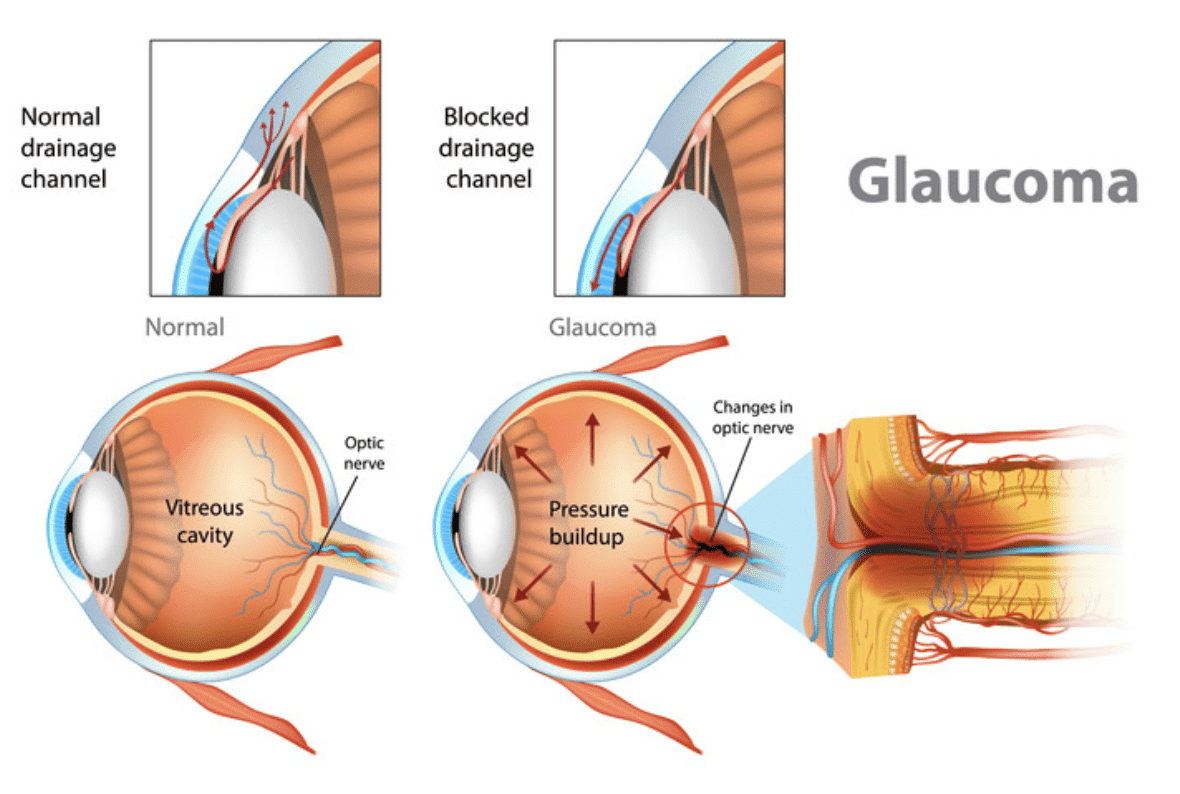
Figure 1 – Development of glaucoma in the eye. Source: Harvard Health Publishing.
Claim 5 (Partially correct):
“Sugar in your teeth is called cavities”
Cavities form when dental plaque, a sticky film of bacteria that coats the teeth when we eat sugary or starchy foods, builds on the outer layer of tooth enamel. Acids in dental plaque cause tooth enamel to dissolve and create tiny holes in the surface of the enamel, which in turn allow bacteria and acid to infiltrate the inner layers of the tooth, including dentin (which is softer than enamel and more susceptible to accelerated decay) and pulp (the innermost layer of the teeth).
This is likely the root of the claim that cavities are sugar in your teeth, since it is a combination of sugar, bacteria, and acid that causes cavities to form[6].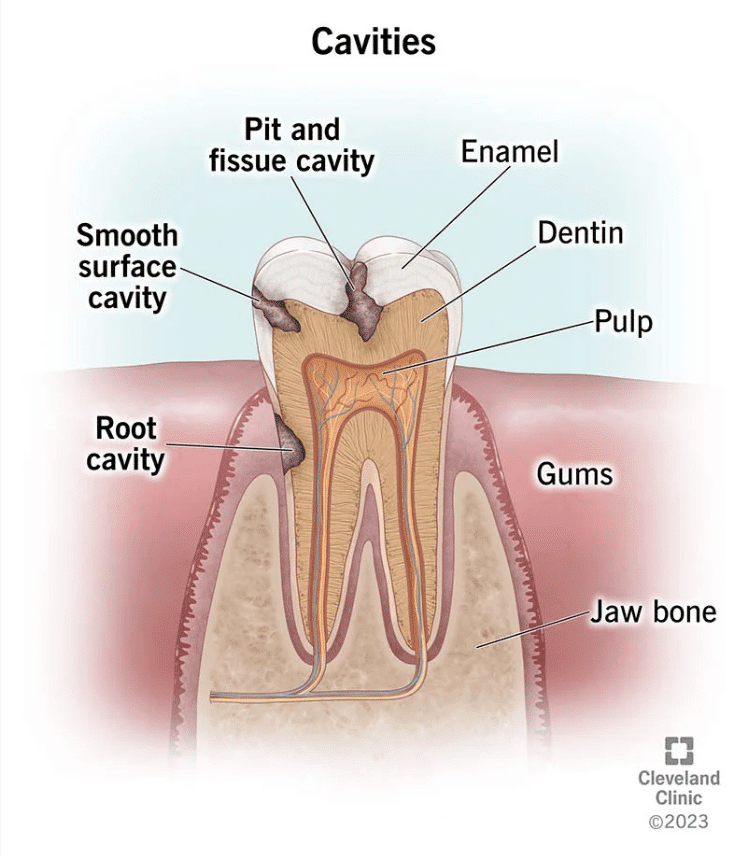
Figure 2 – Model of cavity development in layers of the tooth. Source: Cleveland Clinic.
Conclusion
Sugar is an important part of our diet that provides energy for the growth and maintenance of healthy cells. Like any nutrient, sugar can have an adverse impact on health when consumed in excess. But this video greatly oversimplifies the relationship between sugar and disease. It erroneously equates correlation with causation, implying that one event occurs as a consequence of another—in short, that sugar causes medical conditions like cancer, ADHD, or glaucoma, even when the available scientific evidence doesn’t support these simplistic explanations.
REFERENCES
- 1 – Liberti and Locasale. (2016). The Warburg Effect: How Does it Benefit Cancer Cells? Trends in Biochemical Sciences.
- 2- Petrelli et al. (2021). Association of Obesity With Survival Outcomes in Patients With Cancer. JAMA.
- 3 – Farsad-Naeimi et al. (2020) Sugar consumption, sugar sweetened beverages and Attention Deficit Hyperactivity Disorder: A systematic review and meta-analysis. Complementary Therapies in Medicine.
- 4 – Del-Ponte et al. (2019) Sugar consumption and attention-deficit/hyperactivity disorder (ADHD): A birth cohort study. Journal of Affective Disorders.
- 5 – Kurihara et al. (2021) Glucose levels between the anterior chamber of the eye and blood are correlated based on blood glucose dynamics. PLoS One.
- 6 – Pang et al. (2022). The Oral Microbiome Impacts the Link between Sugar Consumption and Caries: A Preliminary Study. Nutrients.

